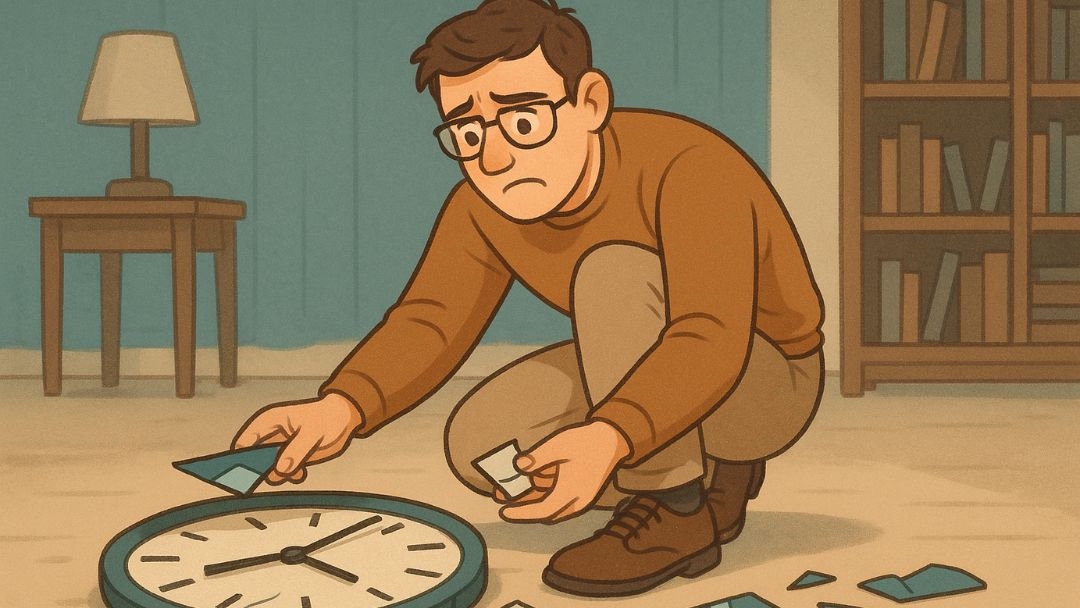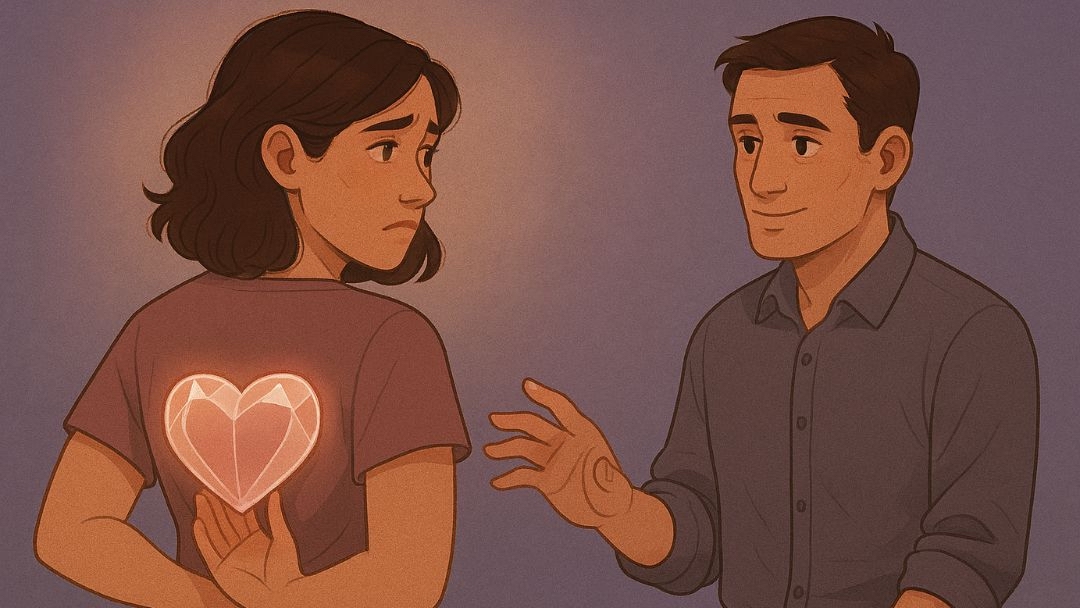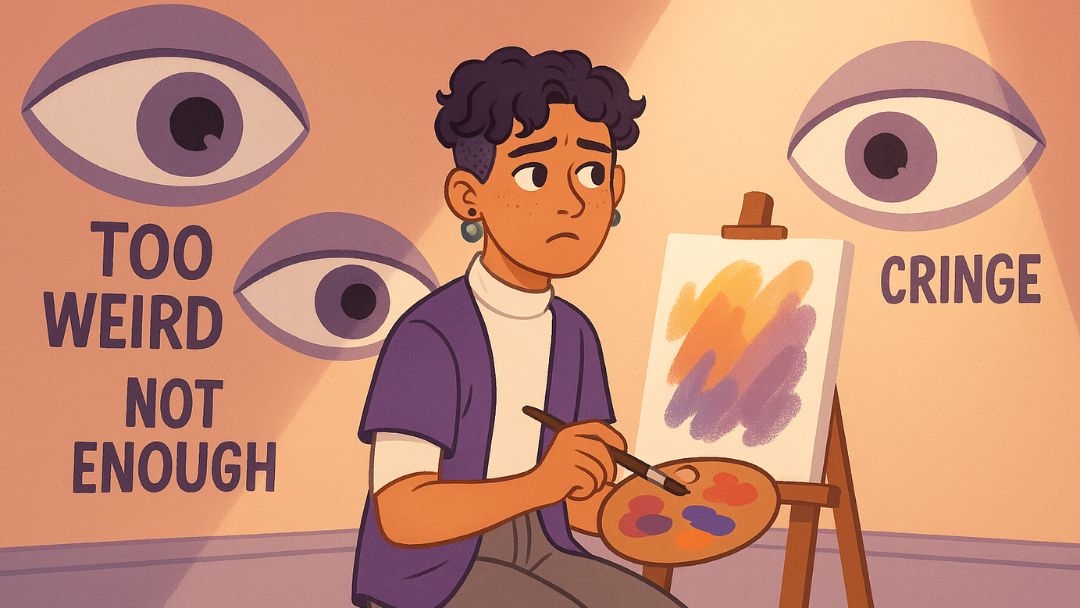Conquer the Fears That Are Holding You Back From Living Your Best Life
Fear is a natural emotion that helps us respond to danger, but too much of it can hold us back from living fully. Fear doesn’t always look like panic—it can feel like logic, hesitation, or buried emotions. This guide helps you recognize 13 hidden fears that keep people stuck and shows how to face them, reclaim your freedom, and grow with confidence.


Back
11 mins read
I've been a single mom for quite a while now, so long that it's just normal for it to be just me and my kids. The idea of letting someone else into our lives scares me more than I care to admit.
What if it doesn’t work out again? What if he doesn’t connect with my kids? Or worse, what if they don’t like him?
These questions loop in my mind. Lately, I’ve caught myself thinking maybe it’s just not meant to happen. Maybe I’ll revisit the idea of marriage once the kids are grown.
But fear doesn’t only show up in love. It slips into all kinds of decisions—big and small.
Maybe you’ve experienced something similar:
- You thought about going back to school, then told yourself, “What’s the point?”
- You saw a new job listing that sparked something, but didn’t apply because you weren’t sure you measured up.
- You met someone who felt like it might be your soulmate, but past hurt made you pull away.
We don’t always name it fear. We say we’re “being practical” or “waiting for the right time.” But often, it’s fear in disguise, making choices for us without us realizing it.
This article is about the fears that hold people back—not just in romance or career moves, but in everyday decisions that shape who we become.
13 Common Fears That Keep People Stuck—Which One’s Holding You Back?
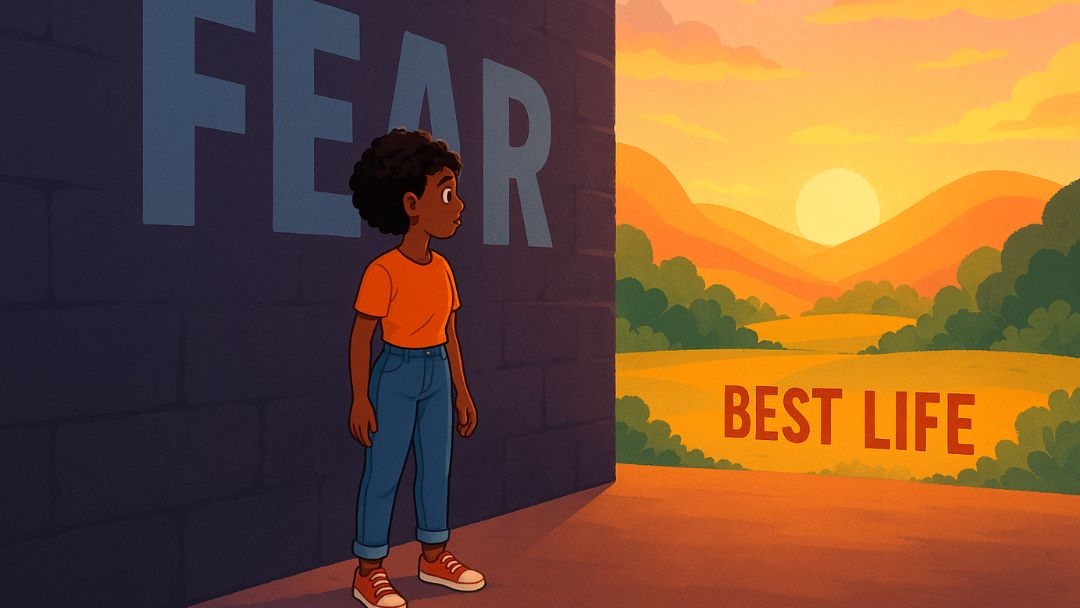
Fear doesn’t always show up as panic. Sometimes it sounds like logic or feels like hesitation. It can wear the mask of caution, self-doubt, procrastination, or even responsibility.
But underneath? It’s the quiet voice saying don’t try, don’t hope, don’t change.
Here are 13 of the most common fears that often stop people from moving forward, even when something better is waiting on the other side.
1. Fear of Public Speaking
Fear of public speaking is one of the most common anxieties, even though most people have something valuable to say.
For many, just the idea of standing in front of an audience—whether it's five people or fifty—is enough to trigger racing thoughts, a dry mouth, and a strong urge to run. Glossophobia, the technical name for fear of public speaking, often comes from a worry about being judged, making a mistake, or freezing up in the moment. Even some of the most charismatic people—including more than one motivational speaker—struggle with it.
Example: You’re asked to give a short presentation at work. You know your material better than anyone, but the fear kicks in: What if I mess up? What if I forget my words? So you turn it down and let someone else take the lead—even though it could’ve been your moment to shine.
🚀 Tip: Start small—practice speaking in low-pressure settings. The more you normalize being seen and heard, the more your confidence will grow.
2. Fear of Failure
Fear of failure can stop you from trying, because you're convinced that messing up is worse than never starting.
Being afraid you are going to fail is one of the most paralyzing fears. It convinces you to hold back—not because you don’t want something, but because the idea of failing feels too painful or embarrassing. If you’ve failed before, this fear only grows louder. You start to wonder, “What will be different this time?” So instead of risking disappointment, you talk yourself out of even trying.
Example: You’ve thought about writing a book or launching a business for years. But every time you get close, you stop. You tell yourself it’s not the right time—but really, you’re scared it won’t work, and you’ll feel like a failure again.
🚀 Tip: Remind yourself that every failed attempt brings experience, and experience is how success is built.
3. Fear of Success
Fear of success can hold you back because it brings pressure, visibility, and the risk of outgrowing your comfort zone.
Believe it or not, some people fear success just as much as failure. Achieving your goals might mean facing new expectations, stepping into the spotlight, or navigating unfamiliar territory. It can also trigger guilt, especially if success sets you apart from your peers or challenges your identity. Instead of stepping into your potential, you might shrink back, telling yourself you're not ready yet.
Example: You get offered a promotion that comes with more money and recognition—but also more responsibility. Instead of accepting it, you hesitate or decline, not because you can’t do it, but because you’re afraid it might change everything about your routine or how others see you.
🚀 Tip: Redefine success on your own terms so it feels empowering, not overwhelming.
4. Fear of Change
Fear of change can keep you stuck in your comfort zone—even when that comfort comes with pain.
Change can be scary, even when the current situation is clearly not working. Staying in familiar routines, roles, or relationships can feel safer than stepping into something new. That’s why some people stay in jobs they hate or relationships that hurt—because it’s what they know. The fear of starting over or facing uncertainty makes the known pain feel more tolerable than the unknown possibility.
Example: You know a friend who constantly complains about their emotionally abusive partner, yet never leaves. Deep down, they’re terrified of becoming a single parent or starting over, so they stay—even though they’re miserable.
🚀 Tip: Focus on what you’re moving toward, not just what you’re leaving behind. Change feels less scary when it’s tied to hope, not fear.
5. Fear of Judgment
Fear of judgment makes you hide parts of yourself to avoid criticism or disapproval from others.
Worrying about what people will think can be paralyzing. It stops you from expressing yourself, making bold moves, or being fully authentic. Whether you’re considering a career change, launching a passion project, or simply speaking your truth, the fear of being misunderstood or criticized can make you stay silent. But constantly seeking approval can leave you feeling unfulfilled and full of regret.
Example: You’ve always wanted to post your artwork or poetry online, but you hesitate every time. What if people think it’s bad? What if no one responds? So you keep it to yourself, even though it matters deeply to you.
🚀 Tip: Not everyone will get you, and that’s okay. Focus on finding the people who do, not silencing yourself for those who don’t.
6. Fear of Getting Hurt
Fear of getting hurt can keep you emotionally guarded, even when you deeply crave connection.
If you’ve been through a painful experience—whether in love, friendship, or family—it makes sense that you’d want to protect yourself. But staying guarded all the time can leave you feeling isolated. This kind of fear is especially common in people with fearful-avoidant or anxious attachment styles, who’ve learned to associate closeness with pain or instability. The fear of reopening old wounds may lead you to keep your walls up, even with people who genuinely care. Unfortunately, a real connection requires some level of vulnerability.
Example: You start seeing someone new and things are going well, but you hold back emotionally. You don’t share much, you avoid deep conversations, and you keep them at a distance. In the back of your mind, you’re just waiting for the moment it all falls apart.
🚀 Tip: Let people earn your trust gradually—but don’t let fear be the only thing making your decisions. You deserve connection, even if it takes time to feel safe again.
7. Fear of the Unknown
Fear of the unknown keeps you clinging to what’s familiar—even when it no longer fits who you are.
Some people thrive on new experiences. Others feel a deep pull toward routine, predictability, and structure. If you tend to avoid risks or feel uneasy in uncertain situations, that’s not weakness—it may just be how you’re wired. But when fear of the unknown takes over, it can stop you from making changes that lead to growth. You stay in jobs, relationships, or roles that feel “safe,” even if they’re also draining or unfulfilling.
Example: You’ve been unhappy at your job for a long time, but the idea of switching fields—or even brushing up your résumé—feels overwhelming. So you convince yourself it's not that bad and stay put, even though you know you want more.
🚀 Tip: You don’t have to leap into the unknown all at once. Start with small, low-risk changes to build your confidence and prove to yourself that uncertainty doesn’t always mean danger.
8. Fear of Rejection
Fear of rejection can prevent you from connecting with others. You may be afraid of being dismissed, embarrassed, or unwanted.
This fear isn’t just about hearing the word “no.” It’s about the vulnerability that comes with putting yourself out there, especially in social or emotional situations. People with social anxiety often feel this fear even more intensely. The thought of being judged, awkward, or misunderstood can be enough to shut you down completely. But rejection doesn’t always mean you're doing something wrong—it might just mean the other person isn’t your person. And that’s okay.
Example: You’re at a party or gathering and keep thinking about how much you’d like to talk to someone new—maybe a friend-of-a-friend or a coworker you find interesting. But the fear creeps in: What if they think I’m weird? What if I make it awkward? So you stay quiet and walk away, even though you really wanted to say hello.
🚀 Tip: Start with small, low-stakes interactions. Each time you speak up, you build confidence and remind yourself that most people are more open than you think.
9. Fear of Disappointment
Fear of disappointment makes you play small because you’d rather expect nothing than risk being let down.
This fear is sneaky. It convinces you that aiming high or hoping for more will only lead to frustration. You avoid applying for dream jobs, chasing goals, or trusting compliments—not because you don’t care, but because you care so much that falling short would hurt. And it’s not just about your own hopes—many people become too nice out of fear of disappointing others. You put everyone else’s needs first, not just out of kindness, but because the idea of letting someone down feels unbearable.
Example: You get a glowing review at work, but instead of feeling proud, you freeze up. Now you’re afraid to make a mistake and disappoint your manager, so you start holding back, second-guessing everything you do.
🚀 Tip: Disappointment is part of being human, but so is hope. Don’t rob yourself of joy just to avoid a few bumps along the way.
10. Fear of Losing Control
Fear of losing control can cause anxiety when life feels uncertain, making it hard to adapt or let go.
The fear isn’t always obvious—it can look like perfectionism, micromanaging, or needing to plan every detail. You feel secure when you’re steering the ship. But when life throws curveballs, the lack of control can trigger panic, stress, or shutdown. While it’s healthy to manage what you can, it’s equally important to learn how to release what you can’t.
Example: You have your whole day planned out, but an unexpected meeting throws everything off. Instead of adjusting, you spiral—feeling overwhelmed, irritable, or frozen, because your routine just got disrupted.
🚀 Tip: Focus on controlling your response, not the outcome. Accepting uncertainty can open doors to unexpected growth and calm.
11. Fear of Being Too Much
Fear of being too much can cause you to shrink yourself to avoid making others uncomfortable.
This fear often shows up in people who’ve been called “too emotional,” “too intense,” “too loud,” or “too ambitious.” You start to believe that your personality needs to be toned down to be accepted. So you play it safe—dialing back your enthusiasm, opinions, or creativity just to avoid being seen as overwhelming. But when you constantly filter yourself, you also disconnect from your most authentic self.
Example: You have a bold idea or strong feeling in a group setting, but hold back. You’ve been told you “come on too strong,” so you stay quiet—even though your voice could’ve moved the conversation forward.
🚀 Tip: You’re not too much—you’re just not for everyone. The right people will appreciate your authentic self, not just the version that plays small.
12. Fear of Outshining Others
Fear of outshining others can lead you to downplay your strengths to protect someone else’s feelings.
This fear doesn’t come from arrogance—it often comes from experience. If you’ve been in environments where your confidence or success made others uncomfortable, you might’ve learned to shrink yourself to avoid backlash. Many women, especially in male-female dynamics, have been told they’re “too ambitious,” “too direct,” or “intimidating.” Over time, you start to downplay your strengths, not out of modesty, but as a form of self-protection. It’s also a quiet form of people-pleasing—trying to keep the peace by minimizing your own wins.
Example: You’re being recognized for your work, and your instinct is to brush it off or change the subject. You don’t want your friends or colleagues to think you’re bragging—even though you’ve earned every bit of that praise.
🚀 Tip: You can be proud of your progress and still be compassionate. The people meant for you—personally or professionally—won’t ask you to dim your light.
13. Fear of Not Being Good Enough
Fear of not being good enough can make you second-guess everything you do—even when you're already doing well.
I’ve been writing professionally since 2016. I've created more content than I can count. And still, almost every time I send something off, I catch myself thinking: What if the client doesn’t like it? What if I missed something? What if it’s just... not good enough?
That’s the grip of imposter syndrome. Even when you have the skills, the experience, or the results, you still feel like you’re just pretending. This fear can make you play small, avoid new opportunities, or constantly overwork to “prove” yourself. It doesn’t matter how many people say you’re doing great. If you don’t believe it, their words bounce right off.
Example: You get asked to lead a project at work, and your first thought isn’t great! It’s why me? You start listing all the reasons someone else might be better, even though your track record says otherwise.
🚀 Tip: When self-doubt shows up, don’t wait to feel worthy—act like someone who is. Confidence grows through action, not perfection.
Understanding the Nature of Fears That Hold People Back

Now that you’ve seen how fear shows up—often quietly and disguised—it’s worth stepping back to understand why it can shape so many of our choices.
Fear isn’t always loud. It doesn’t need to be. Some of the most limiting fears show up as hesitation, second-guessing, or an invisible wall you can’t quite explain. You might feel like you're just being careful, but underneath it, you're bracing for something bad happening—even when there's no real threat.
Biologically, fear exists to keep you safe.
Your brain is wired to avoid danger, and it doesn't always distinguish between physical threats and emotional risks. In today’s world, that means fear can be triggered by things like failure, criticism, or change—anything that feels uncertain or out of your control.
But once you understand that fear is just a caution signal—not a stop sign—you can face it head-on. You can pause, question the story it’s telling you, and make intentional choices that move you forward instead of holding you back.
You may not eliminate fear completely, but you can stop letting it lead. And that’s when real growth begins.
Practical Strategies to Overcome Fears That Are Holding You Back
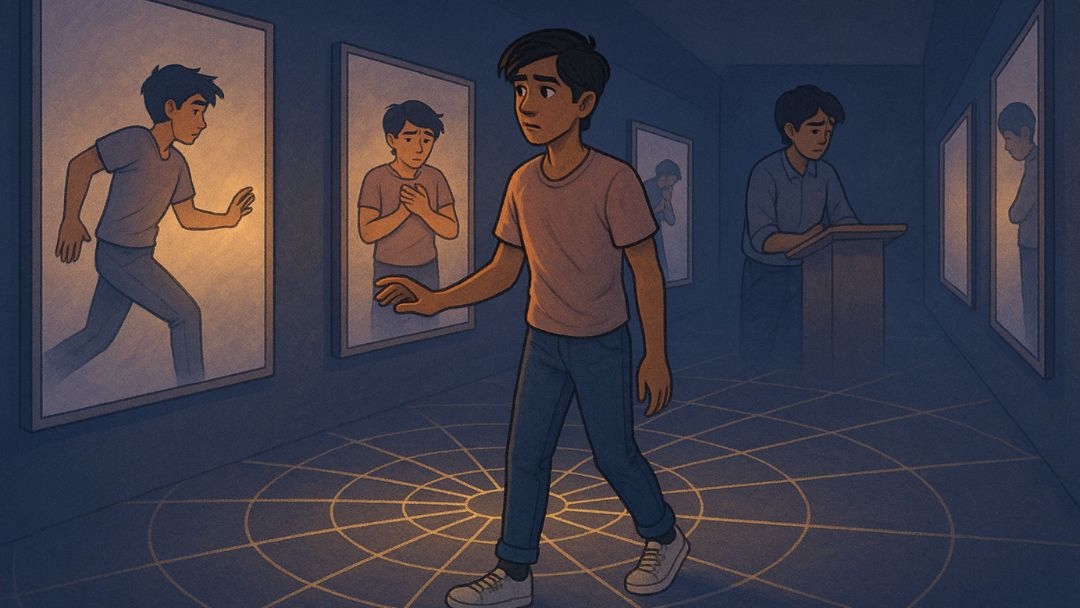
It’s one thing to recognize fear—it’s another to move through it. These quick strategies can help you do just that:
- Acknowledge it. Don’t pretend you’re not afraid. Call it out, write it down, and bring it into the open so it stops running the show from the shadows.
- Let yourself feel it. Fear doesn’t mean weakness—it means you’re human. Sit with the feeling instead of judging yourself for it.
- Ask “What’s the worst that could happen?” Fear loves exaggeration. Reality usually isn’t nearly as bad as the story you’re telling yourself.
- Do it anyway. Action kills fear. Don’t wait to feel brave—start small and act before overthinking takes over.
- Be prepared. If fear stems from uncertainty, do your homework. Preparation builds confidence and reduces overwhelm.
- Stay present. Fear thrives in the future. Bring your focus back to what’s happening now, not what might go wrong later.
- Take small steps. You don’t have to conquer fear in a day. Progress is built through tiny, repeated acts of courage.
Understanding Your Fears Is Part of Understanding Yourself

Fear doesn’t just stop you from acting—it stops you from knowing yourself fully. It hides your strengths, reshapes your choices, and clouds your sense of what’s possible.
As Marianne Williamson wrote, “Our deepest fear is not that we are inadequate. Our deepest fear is that we are powerful beyond measure. It is our light, not our darkness, that most frightens us.”
Getting to know your fears is part of getting to know yourself.
The Enneagram is one tool that makes this especially clear—it’s a personality framework built around the core fears and motivations that shape how we see the world. When you understand what drives you at a deeper level, you can begin to make choices that align with who you really are, not just who fear has told you to be.
If you haven’t explored your Enneagram type yet, now might be the perfect time to start. Understanding your core fear could be the key to unlocking your next chapter.


Return to Blog
